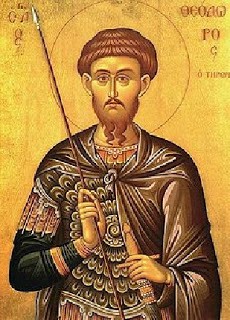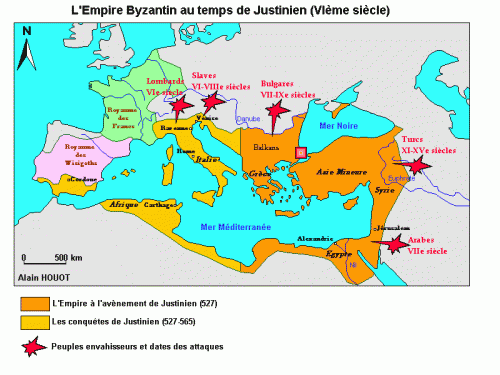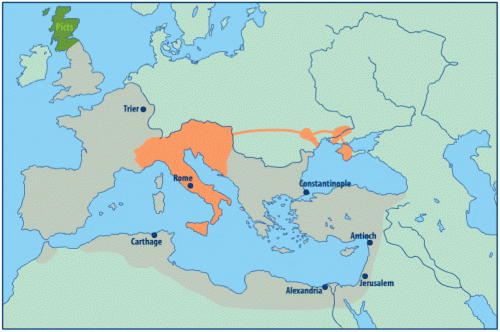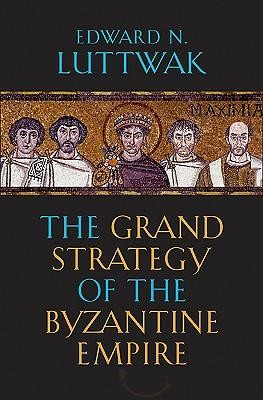History can be indifferent to even the worthiest of men, and indeed many exemplary kings and men of renown languish in obscurity, known only to a few historians and specialists. Such is the case with the Ostrogothic King Totila who showed himself capable of overcoming nearly insurmountable odds without staining his name with luxury, avariciousness, and many of the pitfalls which power and status bring and giving the Roman Empire’s best generals some of their most difficult campaigning.
 By the 6th century AD, the Roman Empire had become something of a fading memory. The Ostrogoths had ruled Italy since the time of Theodoric the Great and there had been no Emperor claiming the throne in the western half of the Roman Empire since the death of Julian Nepos in 480 AD. The eastern half of the Empire with the capital at Constantinople held out, although not without considerable pressure from the hostile and powerful Persian empire on the border, and barbarian tribes to the north. Under Justinian, the Eastern Roman empire embarked on a massive program of rebuilding, legal restructuring, and most importantly, reconquest. His successors having left a considerable treasury, and his military and political situation secure by 532 AD, Justinian was keen on seeing the reputation of his Empire restored to its former glory. He was blessed with two of the most capable and clever generals the empire would ever produce, Belisarius and Narses who could turn even the most adverse circumstances into spectacular victories.
By the 6th century AD, the Roman Empire had become something of a fading memory. The Ostrogoths had ruled Italy since the time of Theodoric the Great and there had been no Emperor claiming the throne in the western half of the Roman Empire since the death of Julian Nepos in 480 AD. The eastern half of the Empire with the capital at Constantinople held out, although not without considerable pressure from the hostile and powerful Persian empire on the border, and barbarian tribes to the north. Under Justinian, the Eastern Roman empire embarked on a massive program of rebuilding, legal restructuring, and most importantly, reconquest. His successors having left a considerable treasury, and his military and political situation secure by 532 AD, Justinian was keen on seeing the reputation of his Empire restored to its former glory. He was blessed with two of the most capable and clever generals the empire would ever produce, Belisarius and Narses who could turn even the most adverse circumstances into spectacular victories.
The irony of the notion of a “Roman Empire” that didn’t physically possess Rome was not lost on Justinian, who made retaking Italy a priority once his campaign against the Vandals of North Africa succeeded. The situation in Italy was seemingly ripe for conquest, the Goths had not found the among the successors of Theodoric anyone capable of maintaining the situation he left them in 526 AD, and there was considerable discord between the Arian Gothic population, the old Roman senatorial class and the Roman Catholic population. Justinian sent Belisarius with a small expeditionary force to retake Italy and this went smoothly enough. Within five years the Goths had been deprived of most of their territory, and their king Witiges had been sent to Constantinople in chains. His successors failed to rally their subjects to any great effect and fared no better.
Such was the state of affairs when in 541 AD, Totila was acclaimed the new King of the Italy by the Ostrogoths. Eraric, the nominal king, had taken the throne after the murder of Ildibad, Totila’s uncle. He was by all accounts a weak and unpopular king, more tolerated than loved. His groveling for peace terms at all costs, infuriated his people against him and he was assassinated. The Goths did not necessarily follow that a king’s heir was his nearest kin as a rule, and generally the nobles would gather and acclaim a new king from the most worthy of their ranks. Totila’s role in the assassination of Eraric is not entirely clear, although it is likely he was aware of it and assented to it. It is known he was regarded as a usurper by Procopius, one of our key sources on this period. However we must bear in mind that Procopius had reason enough to blacken Totila’s name due to his closeness to Belisarius and position in the imperial court. Whatever the case was, conspiracy against a king, is a black deed and to excise it from an account of his life would be dishonest but judging by his character afterwards, one cannot say he was raised to the purple for self enrichment or desire for power- the last five royals had not died natural deaths or survived in chains in Constantinople and the position of the Goths was a dire one, their kingdom seemed to all observes all but extinguished.
Young and energetic, he quickly proved himself to be a very different man from his predecessors in his ability and wisdom. As G. P. Baker observed;
“The Goths, with Eraric or Witiges for a king, may have been poor creatures; under Totila they suddenly once more became the Goths of Theoderic and Irminric. Long before Totila had accomplished any great action Justinian detected him as one lion might scent another. He recognized a king.”(p. 262)
With only a few fortresses in northern Italy still in his possession, Totila first rallied the Goths at Verona, defeating a poorly planned attack on the stronghold and followed it up with a route of the numerically superior Roman army at Faventia. As Lord Mahon, who was by no means sympathetic to the Gothic cause relates;
“The Goths advanced to charge with all the generous boldness which a national cause inspires, while the Romans displayed the voluntary cowardice of hirelings whose pay had been withheld.”(P. 164)
Having cemented his followers’ loyalty in this action, he pursued an ambitious strategy, bypassing the Roman held fortresses and cities in the area- he gathered his forces together and pushed headlong into southern Italy, where the Romans had become lax in their guard. Within a short period of time, virtually all of southern Italy was in Gothic hands again. In his treatment of captives and prisoners he was merciful. His keen sense of justice won him praise even by Procopius and his enemies. In one incident a peasant complained to him that one of his bodyguards, a man known for bravery and well liked by his compatriots, had raped his daughter. Despite the urgings of his men, Totila had the Goth executed, insisting that God favored those who serve justice and as king he had to serve justice if his war was to be worth fighting. In several instances the wives of senatorial patricians fell into his hands, and they were returned to their husbands free from harm, without ransom. Such was his character that the Roman prisoners were induced to serve under his banner with little effort.
After taking Naples he took personal care to make sure food and supplies reached the populace properly. By 543 the Roman presence in Italy was reduced to a few forts and garrisoned towns, all isolated and only capable of resupply by the sea. Totila besieged and captured Rome in 544. Having threatened to turn the city into a field for pasture and depopulate it were his peace terms to Justinian not met, he spared the city this on account of its great history. Some of its defensive structures were removed and its population was spread throughout the countryside to discourage further Imperial assaults. This decision was much criticized by his compatriots as excessively compassionate. Belisarius quickly exploited this by reocuppying the city and rebuilding its defenses at the fastest rate possible as Totila left the city unguarded, not thinking it would be of any strategic value in its current state. Enraged, the Gothic king returned to Rome but his assaults were repulsed. Despite this setback, the Gothic position was everywhere else only growing stronger.
In 549 Totila again besieged Rome. He once again sent peace terms to Constantinople. These were fair and moderate, merely that the Ostrogoths ruled Italy in the name of the Emperor, the same arrangement that had been made with King Theodoric six decades earlier. His envoys were not received. Despite his frustration with the fickle loyalty of the inhabitants and clever stratagems of Belisarius, his troops entered Rome in an orderly fashion, and he restored to their homes those Italians who he had previously expelled and set about rebuilding and repairing the city. The Imperial prisoners were given the choice between leaving Italy or serving under his banner and the majority, as was often the case, threw their lot with Totila. That same year also brought about the recall of Belisarius from Italy. While Belisarius was without a doubt the most brilliant and successful general the Byzantine Empire produced, he was throughout his campaigns was hampered by Justinian’s mistrust of his intentions and lack of resources. The same could not be said for the eunuch Narses, who was able in his own right, but also funded generously. Narses was a careful man, nothing was left to chance. The expeditionary force he took to Italy was around 35,000 strong; near double the size of the one Belisarius had conquered North Africa with 20 years earlier, and larger still than the one Belisarius had taken to Italy. Nevertheless Totila did not wait for Narses’ arrival with his hands folded but everywhere continued to solidify his hold. He took Sicily, then Corsica and Sardinia, effectively reconquering the entirety of the old kingdom of Theodoric. He also built a navy to challenge the Romans at sea. This was no small feat for a Germanic king in the 6th century, one only the Vandals had accomplished to any effect before. Success can test one’s character as much as failure, it is to his credit that he never gave over to excessive luxury or overconfidence, and there is no record of his concerning himself with wining and dining, even after the capture of Rome when he allowed popular entertainments for the people.

The stage was set for the confrontation between Totila and Narses army in 552. Outnumbered significantly, he tried to buy time for reinforcements to arrive. There were episodes of single combat in view of both camps and Totila himself, clad in his finest armor, it is said, made an impressive display of his equestrian skill. Once his relative Teias arrived with 2,000 reinforcements, he elected to launch a surprise headlong charge at Narses. Narses, for his part, had expected such a move and countered it with devastating effect, raining arrows on the Gothic cavalry and shattering his army.
After his death, it fell to Teias to salvage the situation as best he could. Possessing courage and daring, he lacked Totila’s fortune and capacity for clemency, putting to the sword the hostages in his possession. He collected what troops were left for a dash to relieve a siege of Cumae but despite his best efforts, found himself trapped by Mount Vesuvius. In the subsequent battle of Mons Lactarius, the starved and hopelessly outnumbered Goths launched a desperate charge. Teias fell in the fighting, along with most of the top officers under him and the Ostrogothic position essentially collapsed at this point. The reunited Roman Empire of Justinian did not last long- within a generation much of this territory would be overrun by the Lombards, leaving only a corridor stretching from Ravenna to Rome and some other possessions in southern Italy in their hands. The Lombards also had far less interest in preserving the legacy of Rome than the Ostrogoths. The Imperial treasury had also been seriously stretched by these campaigns, leaving Justinian’s successors with serious economic problems
While he ultimately lost his kingdom and his life, Totila showed himself to possess all the qualities of true nobility and royalty. When he was made king, the Ostrogoths were virtually a conquered people. In his first battles he could only muster up 5,000 or so troops, by his last, only 15,000 and one lost battle was all it would take to reverse all his gains, as Taginae proved. It was to his credit that for 11 years he could maintain his army and the loyalty of both his own people and his Italian subjects against an enemy that could replace loses with far greater ease. His prowess in combat is attested to, but what makes him unique was his mercy and justice. That he continued to display moderation in affairs both civil and military through more than a decade of war stand as testament enough. His honor and character was enough to win over even his enemies who could not help but respect him. As Edward Gibbon said,
“none were deceived, either friends or enemies, who depended on his faith or his clemency.”
The Gothic kingdom is today a minor footnote in the history of Europe, coming at the tail end of the classical era of Rome, but Totila’s example is just as important today as it was in his own time. In the modern era cynicism and apathy abound and nations are led not by the best, but by sycophants and cowards willing to sell their souls to the highest bidder, it’s easy to imagine things were always this way. We have become a people who believe nobility and just kings only existed in fairy tales. The example of Totila, a king both in name and deed, should remind us otherwise.





 del.icio.us
del.icio.us
 Digg
Digg The Grand Strategy of the Byzantine Empire
The Grand Strategy of the Byzantine Empire